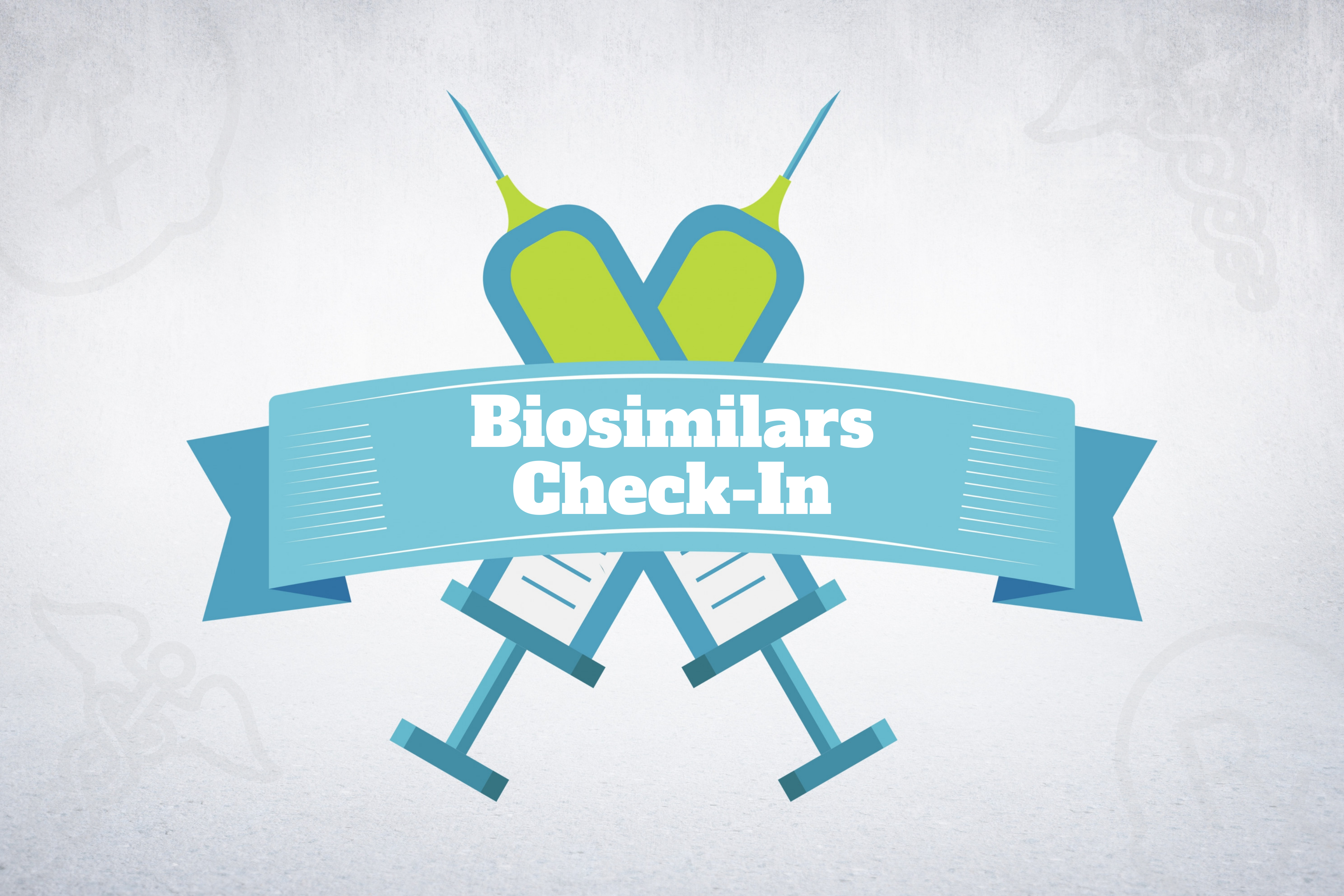- Bone Health
- Immunology
- Hematology
- Respiratory
- Dermatology
- Diabetes
- Gastroenterology
- Neurology
- Oncology
- Ophthalmology
- Rare Disease
- Rheumatology
Biosimilars Check-In: Application Acceptances, European Approvals, New Partnerships
American and European regulatory agencies have provided companies with good news, with several biosimilar candidates seeing application acceptances or approvals in Europe.
American and European regulatory agencies have provided companies with good news, with several biosimilar candidates seeing application acceptances or approvals in Europe.

Omlyclo Approval in Europe
Celltrion announced the European Commission granted approval to Omlyclo (CT-P39) as the first omalizumab biosimilar.1
The product references Xolair and was approved to treat allergic asthma, chronic spontaneous urticaria, and chronic rhinosinusitis with nasal polyps. The approval was based on positive data from a global phase 3 clinical trial. The study evaluated Omlyclo in comparison with Xolair in patients with chronic spontaneous urticaria up to 40 weeks.
“For more than two decades, omalizumab, a blockbuster monoclonal antibody anti-IgE, has revolutionised the management of chronic immune-mediated inflammatory diseases,” said Professor Marcus Maurer, professor of dermatology and allergy, co-director for the Fraunhofer Site for Immunology and Allergology of the Fraunhofer Translational Medicine and Pharmacology ITMP, and executive director for the Institute of Allergology, Charité - Universitätsmedizin Berlin, Germany. “The development of a biosimilar of omalizumab is a welcome solution to help alleviate some challenges with treatment access.”
CHMP Opinion on Avzivi
Bio-Thera Solutions announced that the Committee for Medicinal Products for Human Use (CHMP) of the European Medicines Agency (EMA) has adopted a positive opinion for Avzivi (bevacizumab), a biosimilar monoclonal antibody referencing Avastin.2
The opinion will now be referred to the European Commission for marketing authorization. The positive CHMP opinion was based on analytical, nonclinical, and clinical data from various analyses, including a phase 3 study evaluating the biosimilar in patients with advanced nonsquamous non–small cell lung cancer. Studies confirmed Avzivi's biosimilarity with Avastin, showing equivalent efficacy and comparable pharmacokinetics, safety, and immunogenicity profiles.
In September 2021, Bio-Thera and Sandoz entered a license and commercialization agreement for Avzivi. Bio-Thera is responsible for development and manufacturing, while Sandoz will handle commercialization in the US, Europe, Canada, and other selected countries after approval and successful marketing authorization transfer.
Application Acceptances for Denosumab Biosimilars
Two applications for denosumab biosimilars were accepted by regulatory agencies: 1 in the US and 1 in the European Union. If approved, both products will be used to treat glucocorticoid-induced osteoporosis, and bone loss due to prostate or breast cancer.
Fresenius, through its subsidiary Fresenius Kabi, announced that the FDA accepted its biologics license application for FKS518.3 The company said that the effort is a key part of the company's #FutureFresenius initiative to grow its biopharma platform.
Additionally, Shanghai Henlius Biotech and Organon announced that the EMA has validated their marketing authorization applications for HLX14.4 The submissions were supported by a phase 3 clinical study comparing HLX14's efficacy, safety, tolerability, and immunogenicity with EU-sourced Prolia in postmenopausal women with osteoporosis at high risk for fracture.
In 2022, Henlius and Organon entered a license and supply agreement granting Organon exclusive commercialization rights to HLX14 and another biosimilar candidate in the EU, US, and Canada, excluding China.
References
1. Celltrion receives European Commission approval of Omlyclo® (CT-P39), the first and only omalizumab biosimilar approved in Europe. News release. Celltrion; May 23, 2024. Accessed June 4, 2024.
2. Bio-Thera Solutions receives positive CHMP opinion for Avzivi® (bevacizumab), a biosimilar referencing Avastin®. News release. Bio-Thera Solutions; June 3, 2024. Accessed June 4, 2024. https://www.prnewswire.com/news-releases/bio-thera-solutions-receives-positive-chmp-opinion-for-avzivi-bevacizumab-a-biosimilar-referencing-avastin-302161771.html
3. Fresenius announces FDA acceptance for review of denosumab biosimilar application. News release. Fresenius; May 27, 2024. Accessed June 4, 2024. https://www.fresenius.com/node/6847
4. European Medicines Agency (EMA) validates Henlius and Organon filings for Prolia® and Xgeva® (denosumab) biosimilar candidate HLX14. News release. Shanghai Henlius Biotech; May 24, 2024. Accessed June 4, 2024. https://www.organon.com/news/european-medicines-agency-ema-validates-henlius-and-organon-filings-for-prolia-and-xgeva-denosumab-biosimilar-candidate-hlx14/
Newsletter
Where clinical, regulatory, and economic perspectives converge—sign up for Center for Biosimilars® emails to get expert insights on emerging treatment paradigms, biosimilar policy, and real-world outcomes that shape patient care.
